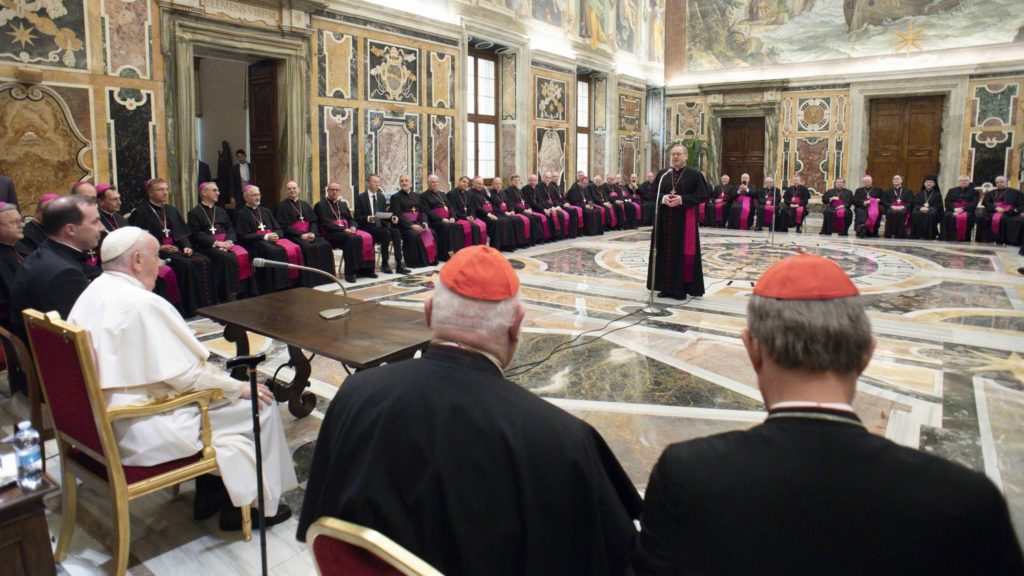Representatives of the Roman Curia and the German bishops' conference discussed theological and disciplinary issues related to the German church's Synodal Path in a "positive and constructive climate" during a meeting at the Vatican July 26.
The meeting was a "continuation of the dialogue initiated during the 'ad limina' visit of the German bishops in November 2022," the Vatican and the German bishops said in a joint communique July 26. In November, Germany's 63 bishops met with Pope Francis for two hours and discussed with heads of Vatican offices the Synodal Path the church in Germany launched in Dec. 2019.
It specified that more meetings between the Vatican officials and the German bishops were expected in the future in which the theological and disciplinary topics addressed would be discussed further.
The meeting was attended by Cardinals Luis Ladria, prefect of the Dicastery for the Doctrine of the Faith (whose term ends in September); Kurt Koch, prefect of the Dicastery for Promoting Christian Unity; Cardinal-designate Robert Prevost, Prefect of the Dicastery for Bishops; Archbishops Filippo Iannone, prefect of the Dicastery for Legislative Texts and Vittorio Viola, secretary of the Dicastery for Divine Worship and the Discipline of the Sacraments.
Various German bishops including Bishop Georg Bätzing of Limburg, president of the German bishops' conference, and the presidents of the German bishops' commissions for liturgy, vocations, ecclesial services, the universal church and faith, in addition to the conference's secretary general and spokesperson represented the German delegation.
Germany's bishops were in Rome for a regularly-scheduled "ad limina" visit in November 2022. Bishop Bätzing told reporters at the end of the visit Nov. 19 that the bishops' meeting with Vatican officials was "a serious test of synodality" during which a moratorium on Germany's Synodal Path was proposed but ultimately rejected.
In the wake of the clerical abuse scandal and with the release of a major study of its suspected causes, the German bishops' conference and the Central Committee of German Catholics launched the Synodal Path in 2019 to come up with appropriate responses. The process began with forums to discuss issues in the four areas the study identified as containing the "systemic causes" of sexual abuse and its cover-up: the exercise of power in the church; sexual morality; priestly existence; and the role of women in the church.
In an open letter published in January, the Vatican told the German bishops they did not have the authority to establish a proposed "Synodal Council," still in formation, composed of bishops and laypeople that top Vatican officials said would supersede the authority of the country's bishops' conference.
Bishop Bätzing responded in a statement issued the same day the Vatican's letter was published, saying that while "the Holy See sees the danger of a weakening of the episcopal office" in the establishment of the Synodal Council, he instead sees "synodal consultation almost as a strengthening of this office."
In the joint communique published after the Vatican officials' meeting with German bishops in their November 2022 meeting they agreed that "mutual listening and dialogue should continue in the coming months."

